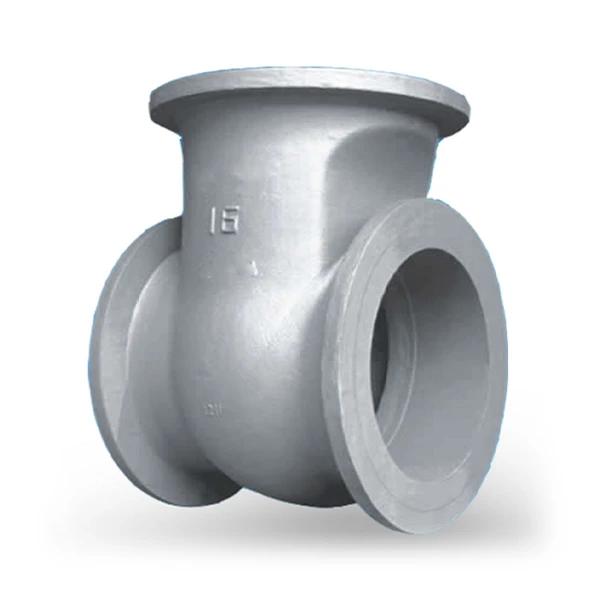Mobile:+86-311-808-126-83
Email:info@ydcastings.com
Aluminium Alloys Suitable for Pressure Die Casting Applications and Their Benefits
Aluminum Alloys for Pressure Die Casting
Aluminum die casting is a widely utilized process for manufacturing complex shapes with excellent dimensional accuracy and surface finish. The advantages of aluminum, such as its lightweight properties, resistance to corrosion, and good thermal and electrical conductivity, make it a preferred choice in various industries including automotive, aerospace, and electronics. However, the performance and quality of the final product significantly depend on the choice of aluminum alloy used in the die casting process.
Understanding Aluminum Alloys
Aluminum alloys are primarily categorized into two groups wrought and cast alloys. Cast alloys are further divided into two series the 1xx.x series, which is nearly pure aluminum, and the alloyed series, which includes various combinations of metals. The latter series is especially important in die casting applications, as these alloys offer enhanced mechanical properties that are suited for high-stress applications.
Common Aluminum Alloys for Die Casting
Several aluminum alloys are particularly suitable for die casting, with each offering a unique set of properties that cater to different applications. The most commonly used aluminum alloys for pressure die casting include
1. Aluminum 380 This is one of the most widely used alloys for die casting, primarily due to its excellent fluidity and good mechanical properties. Aluminum 380 provides a bright finish and has low shrinkage, making it ideal for intricate designs. It is often used in automotive components, electronic housings, and other applications where aesthetics and precision are required.
2. Aluminum 383 Similar to 380, alloy 383 performs well in terms of ductility and corrosion resistance. It has a slightly higher silicon content than 380, which helps improve fluidity during the casting process. This alloy is commonly utilized in power tools and appliances, where lightness and durability are essential.
3. Aluminum 413 Known for its excellent strength and thermal stability, alloy 413 is often used in high-performance applications, particularly in the automotive sector for engine blocks and transmission cases. It boasts superior hardness and fatigue resistance, making it a reliable choice for components subjected to demanding conditions.
aluminium alloy for pressure die casting

4. Aluminum 414 This alloy combines good casting characteristics with enhanced mechanical properties, making it well-suited for die casting applications that require strength without compromising on weight. Alloy 414 is often found in heavy-duty industrial and automotive components.
5. Aluminum 460 Featuring a higher silicon content, this alloy offers great fluidity and is less prone to hot tearing, which is beneficial in complex geometries. It has applications in large components, such as those used in heavy equipment and machinery.
The Die Casting Process
The pressure die casting process involves forcing molten aluminum alloy into a mold at high pressure. This rapid filling helps to achieve finer surface finishes and improved dimensional accuracy. The process is suited for high-volume production due to its efficiency and ability to produce consistent results across multiple casts. However, the choice of alloy can affect the parameters of the casting process such as pouring temperature, cooling time, and the overall cycle time.
Benefits of Choosing the Right Alloy
Selecting the appropriate aluminum alloy for die casting is crucial, as it impacts not just the mechanical strength and durability of the final product, but also its resistance to environmental factors like corrosion and temperature changes. The right alloy can improve the overall performance of components, reduce manufacturing costs by minimizing waste, and extend the lifecycle of products.
Conclusion
Aluminum alloys for pressure die casting offer a diverse range of options tailored to specific industry needs. The choice of alloy plays a significant role in determining the performance characteristics of the final component, influencing factors such as strength, weight, and corrosion resistance. As industries continue to embrace lightweight materials for enhanced efficiency, aluminum die casting will remain a vital process, driven by advancements in alloy formulations and manufacturing technologies. By selecting the right aluminum alloy, manufacturers can ensure quality, performance, and competitiveness in an increasingly demanding marketplace.
-
Impeller Technology That Powers Precision in Pump SystemsNewsMay.22,2025
-
Valve Durability Begins with Quality Cast Iron ComponentsNewsMay.22,2025
-
Performance Cooling with Advanced Automobile Water Pump SolutionsNewsMay.22,2025
-
How Motor Housing and Oil Pans Shape Engine PerformanceNewsMay.22,2025
-
How Metal Castings Drive Modern Manufacturing EfficiencyNewsMay.22,2025
-
Exploring the Engineering Behind Valve Body CastingsNewsMay.22,2025











